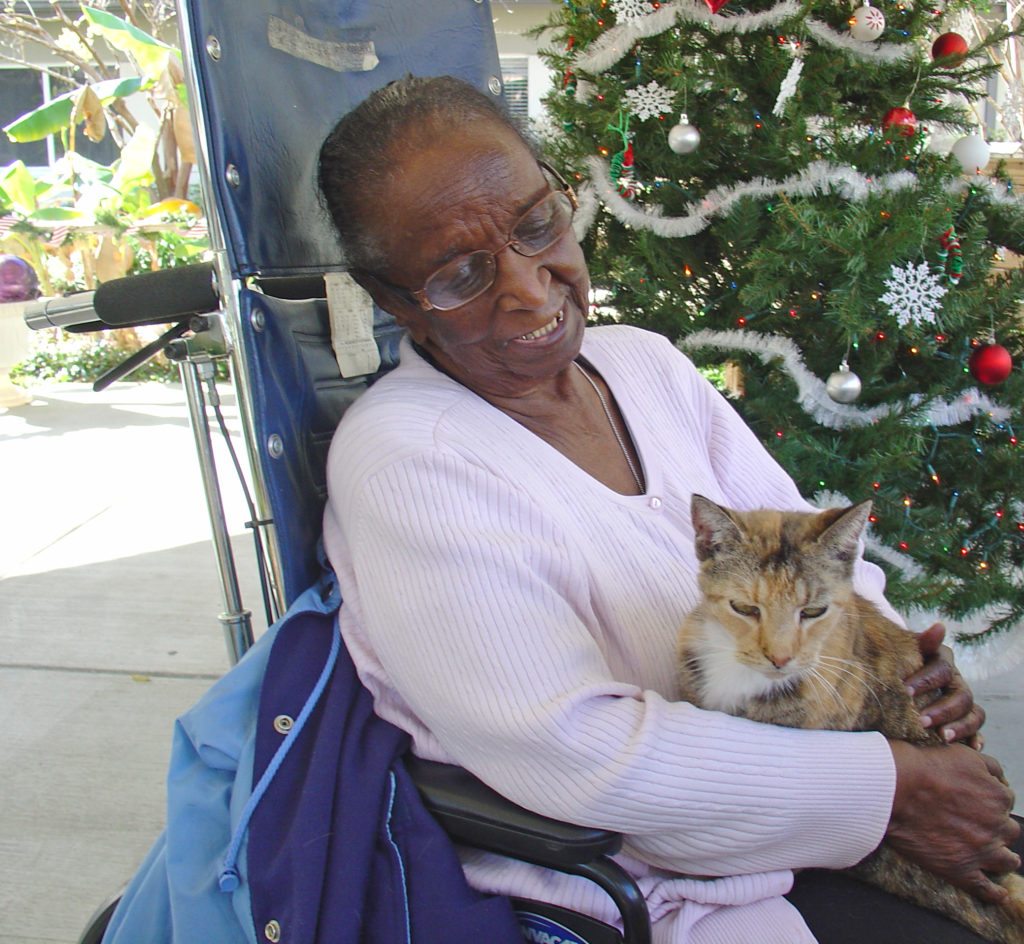For 10 years, Sheltering Hands has been improving the lives of cats in Marion and Levy counties through education, humane care, fostering, adoptions and spay-neuter services. They also operate a “seniors for seniors” fostering program that provides cats to senior citizens seeking companionship.
 “We started out as a network of foster homes and did adoptions through PetSmart. We didn’t have our own facility,” recalls President Debbie Wabbersen. “But we were blessed by a generous bequest from a man when he passed away who had adopted one of his cats from us. That allowed us to purchase this property,” Debbie adds, referring to the organization’s permanent home just northwest of Ocala.
“We started out as a network of foster homes and did adoptions through PetSmart. We didn’t have our own facility,” recalls President Debbie Wabbersen. “But we were blessed by a generous bequest from a man when he passed away who had adopted one of his cats from us. That allowed us to purchase this property,” Debbie adds, referring to the organization’s permanent home just northwest of Ocala.
“We do a multitude of things here, including rescue, adoptions, a low-cost spay-neuter program and a trap-neuter-return (TNR) program.”
Many communities are embracing TNR, in which free-roaming cats are trapped, sterilized and returned to the outdoor locations where they were originally found. It’s a highly effective tool to humanely reduce the cat population and limit disease transmission. Experts estimate there are more than 1.5 billion cats living in the United States. Nearly half are identified as “community cats,” which means they’re either stray (including lost pets) or feral. Studies reveal that a mere 2 percent of community cats are spayed and neutered, which contributes to approximately 80 percent of cat births annually. Considering that cats can reproduce from about 4 to 5 months old and can produce as many as three litters a year, overpopulation is inevitable. Organizations like Sheltering Hands advise that communities cannot “adopt our way” out of the problem. More than 70 percent of the cats that enter shelters are euthanized, and the outlook is worse for community cats, which are typically judged unsuitable for adoption and are destroyed.
“These cats didn’t choose to live outside. Most started out as somebody’s pet and are simply looking for food and shelter. They’re just trying to survive,” explains the organization’s (a 501(c)(3)) Medical Supervisor Dr. Kat Fleck. “Many people don’t want them around and think they need to be placed in a home, not realizing most cannot be placed. Locally, there are several groups working to promote the spay-neuter option, but we don’t have a consistent way to let the public know we are addressing the problem.”
“We’re the only ones actually doing TNR in Marion County.” Wabberson adds. “We do about 2,000 surgeries a year. About half of that is for the TNR program. The other half is the low-cost spay neuter program and our foster cats. The TNR cats are also vaccinated, get their ears ‘tipped’ and are microchipped. We do it for $10 per cat, but it actually costs us $60. We lose money on the program, which is why the financial support we receive is so important.”
And while financial donations are vital, there are plenty of ways to get involved.
“We always need volunteers and fosters, as well as donations of things like cat food, litter, liquid laundry soap and paper towels,” Wabbersen shares. “The whole place is a labor of love.”
Learn more › Visit shelteringhands.org or call (352) 840-0663 for information and to view cats available for adoption.






